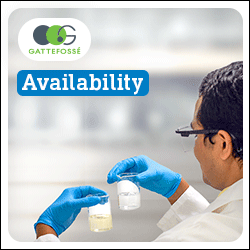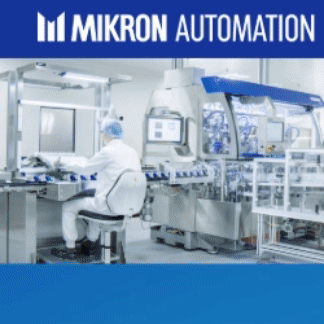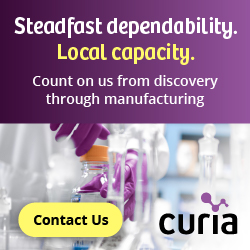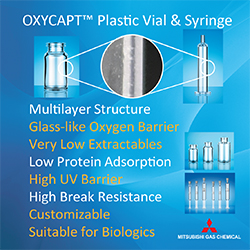Sana Biotechnology Highlights Preclinical Hypoimmune Data for its Allogeneic CAR T Platform & Advancements With its In Vivo Fusogen Platform
Sana Biotechnology, Inc. recently announced data from four presentations at the 2023 American Association for Cancer Research (AACR) Annual Meeting.
“Sana remains focused on improving outcomes, predictability, and access with cell and gene therapies, and we have several programs looking to expand on the transformative potential for CAR T cells in treating hematological cancers,” said Terry Fry, Sana’s Senior Vice President and Head of T Cell Therapeutics. “At AACR, we presented data highlighting the potential of our hypoimmune platform to “hide” allogeneic CAR T cells from immune recognition, improving CAR T cell persistence and anti-tumor effect. Other data highlighted the progress and potential of SG299, the first drug candidate from our fusogen platform, in generating CD19-directed CAR T cells with in vivo delivery. In 2023, we look forward to initial clinical data for SC291, allogeneic CAR T cells for patients with B cell cancers; filing an IND for SC262, allogeneic CAR T cells for patients that have failed previous CAR T therapy; and filing an IND for SG299, our in vivo CAR delivery program for patients with B cell cancers.”
The poster (abstract 4091) titled Engineered hypoimmune CAR T cells provide lasting tumor control in immunocompetent allogeneic humanized mice even with re-challenge described preclinical data on hypoimmune (HIP)-modified allogeneic CD19 directed CAR T cells. The study results showed that HIP CD19-directed CAR T cells were functionally immune evasive in allogeneic humanized mouse models. The cells persisted and remained functional over multiple months in an allogeneic immune system, even with tumor re-challenge after 90 days. In contrast, although CD19-directed CAR T cells lacking hypoimmune edits showed an initial tumor response, they were eliminated by the allogeneic immune system and tumor recurred after 30 days in the majority of animals.
The late-breaking poster (abstract LB311) titled Increased potency of CD8-targeted fusosomes enhances CAR gene delivery to resting primary T cells described the preclinical efficacy of a CD8-targeted fusosome encoding a CD19 CAR transgene manufactured using an improved process. The improved process generates fusosomes with increased potency that result in increased in vivo CAR T generation and increased tumor control. CD8-targeted fusosomes were also evaluated in a clinically relevant mock extracorporeal delivery setting, which potently generated CD19-directed CAR T cells. A CD8-targeted fusosome delivering a CD19 CAR transgene has the potential to provide an off-the-shelf therapeutic approach to generate CD19-directed CAR T cells in vivo and without lymphodepleting chemotherapy.
The poster (abstract 2735) titled Development of a novel, fully human anti-CD19 chimeric antigen receptor for in vivo delivery via CD8-targeted fusosomes compares preclinical data on a fully human CD19-directed CAR, which comprises a human CD19 binder developed at Sana, to a standard murine FMC63 CAR. CD19-directed CAR T cells with the fully human CD19 CAR demonstrated comparable efficacy to CD19-directed CAR T cells with an FMC63 CAR in both in vitro and in vivo models. CD8-targeted fusosomes delivering this fully human CD19 CAR into T cells demonstrated anti-tumor efficacy in vivo. The use of a fully human CD19 binder has the potential to reduce the immunogenicity of the CD19 CAR relative to an FMC63 CAR and has potential applicability in both Sana’s hypoimmune CAR T cell platform and in vivo CAR T cell platform.
The poster (abstract 2734) titled Modulation of resting T cell status to enhance transduction and CAR T expansion following exposure to CD8-targeted fusosomes highlighted the preclinical efficacy of treatments to modulate resting T cell status to enhance transduction and generation of CAR T cells by a with CD8-targeted fusosomes encoding a CD19 CAR transgene, both prior to and after delivery of such fusosomes. Although CD8-targeted fusosomes alone were effective at transducing resting T cells, pre-treatment of resting T cells with IL-7 increased transduction efficiency in vitro and also increased anti-tumor efficacy in vivo. Adding rapamycin to IL-7 in the pre-treatment setting further increased the fusosomes’ transduction efficiency. When IL-7 was delivered post-transduction, there was CAR T cell expansion, resulting in improved in vitro cytotoxicity. When given systemically, IL-7 supported the expansion of in vivo fusosome-generated CAR T cells and increased anti-tumor efficacy compared to fusosome only. Combinations of CD8-targeted fusosomes with cytokine treatments could be implemented to further increase transduction and CAR T cell generation, drive CAR T cell expansion, and improve patient outcomes.
Sana’s hypoimmune platform is designed to create cells ex vivo that can “hide” from the patient’s immune system to enable the transplant of allogeneic cells without the need for immunosuppression. We are applying hypoimmune technology to both donor-derived allogeneic T cells, with the goal of making potent and persistent CAR T cells at scale, and pluripotent stem cells, which can then be differentiated into multiple cell types at scale. Preclinical data from a variety of cell types demonstrate that these transplanted allogeneic cells can evade both the innate and adaptive arms of the immune system while retaining their function. Our most advanced programs using hypoimmune technology include our allogeneic CAR T program targeting CD19+ cancers (SC291), our allogeneic CAR T program targeting CD22+ cancers (SC262), our allogeneic CAR T program targeting BCMA+ cancers (SC255), and our stem-cell derived pancreatic islet cell program for patients with type 1 diabetes (SC451).
Sana’s fusogen platform is designed to optimize in vivo cell specific delivery of genetic material. Our goal is to be able to repair and control genes in cells. Engineering cells in vivo requires the development of both an appropriate delivery vehicle, as well as an active component to effectively modify the target cell. Fusogens are naturally occurring cell-targeting proteins. Sana reengineers these proteins to target specific cell surface receptors, enabling cell-specific delivery to many different types of cells. The platform was developed to deliver an active component to any cell in a specific, predictable, and repeatable way. This technology is the backbone of Sana’s in vivo delivery platform and is incorporated into various product candidates, including SG299, a CD8-targeted fusosome that delivers a CD19 CAR to target CD19+ cancer cells.
Sana Biotechnology, Inc. is focused on creating and delivering engineered cells as medicines for patients. We share a vision of repairing and controlling genes, replacing missing or damaged cells, and making our therapies broadly available to patients. We are a passionate group of people working together to create an enduring company that changes how the world treats disease. Sana has operations in Seattle, Cambridge, South San Francisco, and Rochester. For more information, visit https://sana.com/.
Total Page Views: 843













